Who is your target audience?
First year financial accounting students use the three apps as a class supplement. Another large portion are studying for professional related exams and improving skills for their accounting career.
How big is your audience?
Big enough to start a college.
Are the flashcards available in other languages?
Yes, the flashcards are professionally translated in Spanish & Chinese in book and iOS app form. The in-app translation feature is great for anyone learning business terms between these languages.
Do you work with schools?
Yes. Formal and informal partnerships are welcomed between academic and technical curriculums. Please contact John at AccountingPlay dot com regarding academic pricing, bulk licenses, and affiliate opportunities.
Who does your development?
The USA team works primarily with two outsourced app development shops. A handful of artists and designers help with the visual aspects of the website and products. John Gillingham CPA is responsible for the vast majority of technical content, product conception to sale, and company direction.
How do you make an app?
We use a qualified outsourced team and organize effectively using conventional excel, word, and wireframe images. Communication and fixed cost milestones are key to the success of the product. Generally the process takes approximately three to five times as long as expected from the start of initial development to satisfaction.
How much is your development?
Too much, too long, and too time consuming.
How do you do marketing?
The vast majority of users find Accounting Play via organic app store and web search. We strive to create the most useful content so that it will be shared. Many teachers recommend products to students to help increase class engagement. We are grateful for each and every referral, please keep telling your friends!
Do you do interviews?
We welcome a variety of press opportunities via blog, conventional print, and interviews for both profitable and non-profit entities. Please contact John at AccountingPlay dot com.
What’s up with the animal illustrations?
Accounting Play was born out of the inspiration to make accounting more visually interesting and engaging. Illustrations are custom designed to entertain and engage users. Each animal is a character that represents internal and external stakeholders to a business.
How do you make money?
Most apps are free to download and have in-app purchases to get the full use of the app. Books are available on the site, Kindle, and iBooks.
What are the next steps for the company?
We are seeking more strategic partners with educators and thought leaders in the accounting field. Please reach out to see how we may be able to work together.
Come Jan 2016, the app trilogy: Accounting Flashcards, Debits & Credits, and Accounting Quiz Game will have undergone yet another release to “finalize” branding and allow for more conventional paid marketing of the projects (paid add spend and affiliate partnerships)
What do you need?
We invite exciting accounting educators and fintech businesses to come on the Accounting Play Podcast. User feedback is always needed and appreciated. In order to boost our reach, we need users to share to friends and sites to link back to us. Let’s see how we may collaborate together.
Any future products?
Accounting Play or a new company will be developing into new fin-tech markets and require significant capital. If you are an accredited investor, please contact John for more details.
What were your biggest early, continual, and possible future challenges?
Early Challenge #1: Time Optimism
A three week project to “make some flashcards” turned into a 3 years and counting endeavor. I was overoptimistic on how fast I could create a project and the size of the market that would buy. These incorrect assumptions resulted in potential revenue to be overestimated and expenses underestimated. This cruel combination will quickly result in hemorrhaging cash. Apps with low cost development generally take 3-5 times the initial time budget.
Early Challenge #2: Getting local help
Help in San Francisco is expensive. I made the error of seeking help on a $1,000 development budget which locally will result in a one-page website and elsewhere, significantly more.
Early Challenge #3: Monetization
I choose to initially do a website, thinking that this would be a good place to test the product, but this had no real monetization potential.
Anything you would do differently?
Do Different #1: App first and landing page only for site
Getting someone to pull out a credit card and buy a PDF online is not so easy. I burned about $1,500 in domestic development. The main issue was that my desire outcome for the site would have been a $15,000 budget and the project was just better suited for an app anyway.
Do Different #2: Don’t give up so quick after your first failure
AccountingFlash failed. $10,000 later I had illustrated flashcards and no audience, platform, or way to monetize. I put the project on hold for about 4 months as I watched no visitors actually make it to my broken website. Finally, inspired by another entrepreneur who casually asked “how did those flashcards go” almost a year later did I think F’ it, let’s make the app it was supposed to be.
Do Different #3: All projects should be fixed rate with milestones
Hourly I am not interested anymore. Setup a project, say $1,000, with 4 milestones for an app: Proof of concept, Refinement, Launch, App store approval bug fixing. The per project basis allows budgeting and control. Never make it to milestone 1? Cancel.
Do Different #4: Hire abroad
With a 1/20th cost of living and 1/10 the rate for technical projects… Why try domestically for a “basic” app? The key here is to lower expectation of delivery and shoulder the burden for dozens of iterations. QA, QA, QA… With the affordable costs come more burden to the app dev who needs to test the app.
Do Different #5: Market research – Ask.
Do people want this? Test, test, test… there is a mantra in “the” Valley (AKA Silicon Valley) regarding startups, iterations, and user testing. My biggest (ignore that it is #5) error was PRODUCT MARKET FIT does this thing do what the market really wants, needs, can afford, and can be found? Any break in that chain results in pain. But it is not as easy as asking – “Yo, accounting student, would you buy this?” Although even that would have been a better start. Dancing in the dark, ok, developing in the dark, no.
Do Different #6: Developing in the dark
Accounting Play is owned by one person “this dude.” One of many of the biggest issues is that without a boss, partner, or even employee – that there is little room for feedback. No one told be that a Spanish app is not really the best use of my time… Or that accounting students don’t understand why a giraffe is on a flashcard trying to explain what a “vendor” is. Teams are important for instant feedback. In absence of teams, I should have had other mechanisms.
Do Different #7: Establish a conventional blog and landing page
A basic blog can be setup with minimal efforts. Google takes a long time to catalogue postings so that users can actually find a site. Starting early, even if modest, can help. Sites are scored, almost like credit, and like the credit score length of time in existence is significant.
Do Different #8: Ebooks
I could have taken the original flashcard concept and done an e-book right away. Efforts could have been spent in book promo, iterations, and using my fab-u-louso writing abilities (costs only my time). Ebooks have their own ecosystem of promotion and monetization on their own. This in itself can be a proof of concept.
Do Different #9: Social media
Social media is about social credibility, which takes time to establish. This can make real relationships and an opportunity to get feedback. I am not a huge fan of “social” but who cares, most are.
Do Different #10: English only, please!
Does it make sense to take a product without a proven track record and translate it in another language? NO. Excited by Chinese downloads, I dove head-first into the concept. While amazing and unique, having a bi-lingual accounting app is so niche that marketing might be a bit difficult. Time would have been better spent thinking about lesson plans, listening to students, and thinking about this little thing called marketing.
Do Different #11: Marketing / Product Market Fit / Product Dev Ratio
Just because I don’t like it (marketing) does not mean it is not significant. I have been at a 18% Marketing / 2% Product Market Fit / and about 80% Dev ratio… This is the wrong way! Others in similar product businesses pursue a much different ratio, with the dev 50% or less. I will not make that mistake again.
What are some things you did right?
I did it, I did it #1: Don’t give up
I did not give up and I released my first app in 2014 and the minute I saw users coming in I was thrilled. I had that entrepreneur buzz, that many of my readers know about it. As I would later find out, buzz does not pay bills, unfortunately. That being said… 3 years into it, 2,000 hrs of my time to date… 500 hours of paid help… We created a product and brand to last.
I did it, I did it #2: Outsourcing can work
I found outsourced dev teams that I could afford, even though the timeline took a huge amount of my efforts.
I did it, I did it #3: People did find me
I ranked up in the app store. Stoked. Hard work paid off. People finding the brand and stoked on their results.
I did it, I did it #4: Factory is live (albeit a slow factory)
Using the hard lessons alluded to above I have created a slow but functional minimally viable product workshop.
I did it, I did it #5: Positive feedback
Way over 100 + legit 5 star review and personal emails. Stoked to see everyone living their dream.
I did it, I did it #6: Podcast
The Accounting Play Podcast has received great feedback in helping people with their accounting education and career. This is an enjoyable process that has resulted in a large audience.
Surprises, Challenges and Nuggets? “SCN”
Surprise: The internet is polluted – no one cares
What could you possibly post on a blog that someone outside of your social network would care about – let alone pay you money for? Not much. Not only is the internet so full of useful, useless, and shocking content… you don’t have a chance. The app store has been fundamental in establishing my audience because it is stll relatively less polluted, only millions of apps instead of trillions…Even you tube videos barely scratch the surface.
Surprise: Even your mailing list doesn’t care
Really… Good luck on reaching any human. You must cut through the noise and it is not easy.
Challenge: Teachers care less than you think
I love teachers, but some are too comfortable… If there is no incentive to innovate it takes a special teacher to embrace technology and the unknown.
Nug: The internet don’t care – but your social network might
Since a webpage is in a sea of information it is critical to appeal to anyone who might actually care, such as your real, live, human friends.
Nug: It is not about your site anymore, it is about your content on other social media sites
Facebook, Google, Reddit, Qoura, Twitter… etc… are all becoming their own search engines for information. If you can’t be found on Google, then use the other sites to reach real people…
Challenge: Google is a major gatekeeper
Staring with “create great content” and people will find you, I sought out to do just that. But there is the ultimate decider of how people actually find you, called Google. You can pay via adwords or try to “optimize” but the little person has little if any chance IMHO (in my humble opinion). Now… I know that the search is dynamic, but there is such a reversion to what has already been established, other social networks are a more viable beginner strategy – as Google is likely to revert to old established sites. The goal? Get recognized and rank #1.
Advice to others?
#1 Advice: Keep your day job
Pursue your product dreams while keeping a solid cash flow. You can have good, fast, and cheap, so long as you only pick two. Pursue and test your dreams now. It does not need involve quitting your job and pitching VCs.
#2 Advice: Test and Talk
Pay to test and try your concept long before you develop. Trust me – no one wants your product (mostly they don’t) so get some real help here. There are several services designed to help with this, lead pages, etc…
#3 Advice: Sometimes it is what you don’t do
Careful… just because you can, does not mean you should. Careful where you put efforts.
#4 Advice: Get the right feedback
Asking family is not enough. Get strategic feedback and develop around that
#5 Advice: Pick a concept that you enjoy thinking about every single day of your life without exception, seriously, in the shower, at bedtime, and when you wake
Most products take a long time to do… so… pick something that you can work with for a long time. For me, as a CPA, I could produce a product that at worse would be a glorified business card and at best a retirement plan. 3 years deep takes commitment, think about it.
#6 Advice: U gotta be crazy
I have been told that 50% or more entrepreneurs have a mental illness. This is clearly a fabricated statistic that was told to be by an ill entrepreneur, so it all makes sense. But really, you must live your idea and pursue it relentless. Your easy success will come as easily as it is to win the lottery. In other words, it is gonna be a rocky road.
#7 Advice: Real people matter – one user at a time
How many apps in the store don’t have five, five star reviews? It is sad. Make something great and get your friends to help promote. These are not “vanity metrics” as they may referred to, but actually help others find your product. Seek help to get some momentum.
#8 Advice: Repeat, people are not going to magically find you
An app install is $1 or more… we get 1,000s of ad impressions a day… you need to find the natural outlet to your users. Get out there and show your stuff.
#9 Advice: Small projects, easy to swallow, milestones, and trials
Keep projects small and scope concise. Run trials with potential contractors. Hourly? Forget it. Just make something and launch – doing makes you better than the completion.
Anything else to say?
THANK YOU. It has been a long road of crocodile tears that a bit of retirement accounts helping to pave the way. But to connect with 1,000s of people – helping them in different and innovative ways… It is beyond a blog post. Stoked. And now the cash flow is starting to turn. Pursue your dreams and get it.
Best,
John

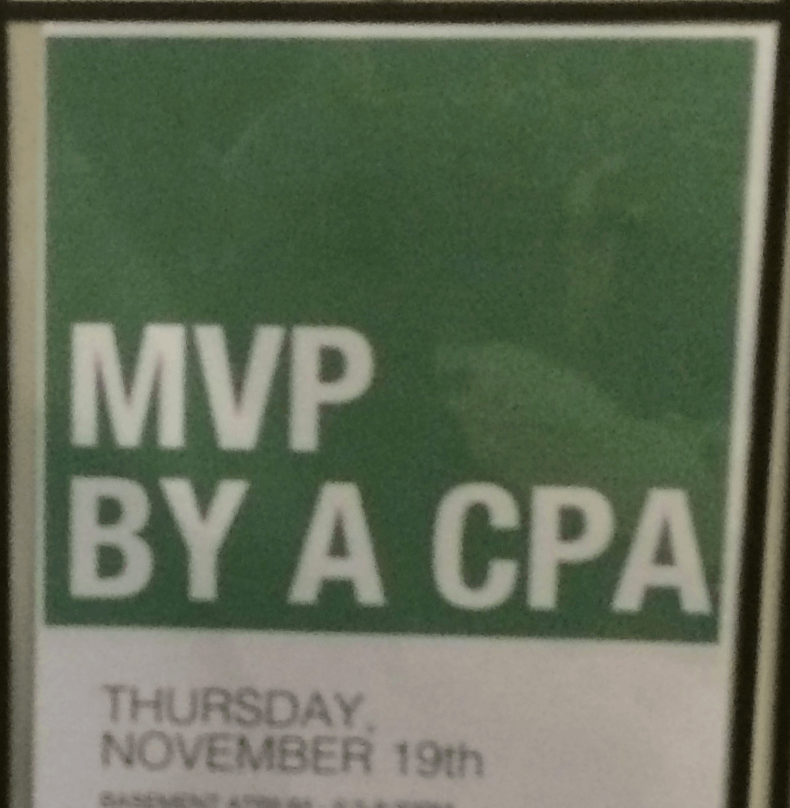
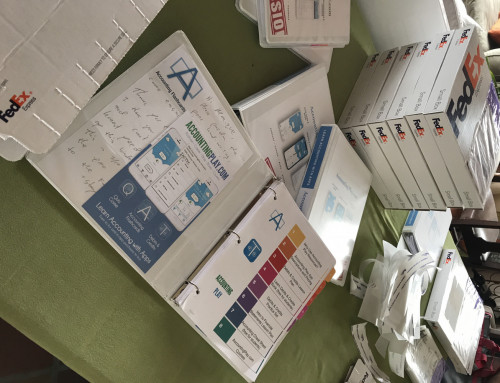
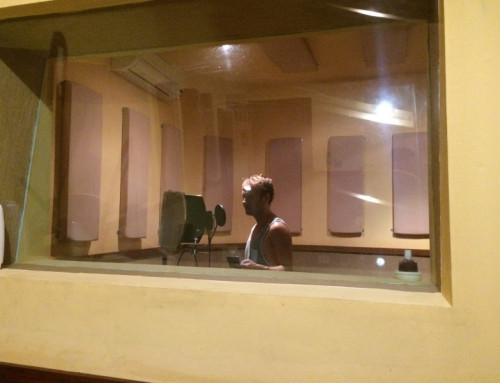

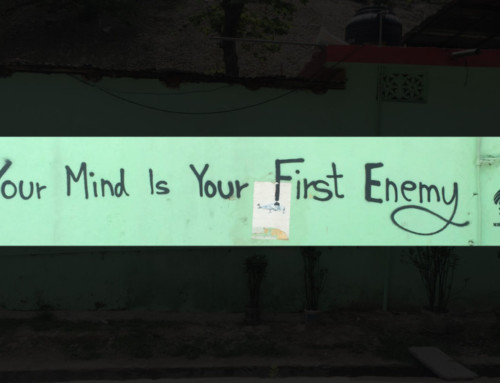
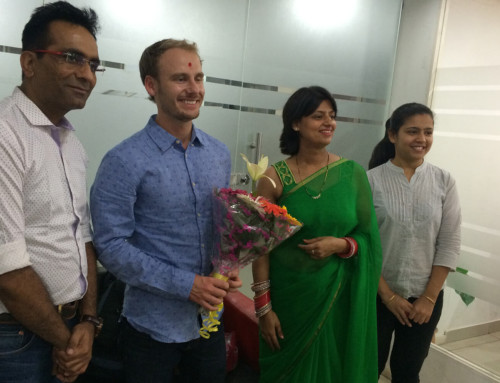
Leave A Comment